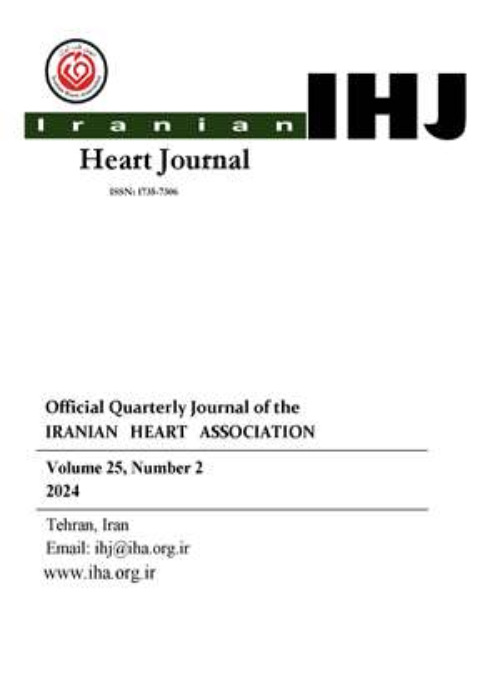Does Oral Contraceptive Use Increase the Risk of Future Cardiovascular Events? Results the Isfahan Cohort Study
Author(s):
Abstract:
Background
Oral contraceptives (OCP) have been previously reported to be a risk factor for venous thromboembolism and pulmonary embolism. However, their effects on cardiovascular disease (CVD) and stroke are still controversial. In this study, we aimed to clarify whether there is an increased risk of future CVD in women with a history of OCP use.Methods
This cohort study was conducted between 2001 and 2011 in a group of women ≥35 years of age. The participants were divided into 2 groups: with a history of OCP use and without a history of OCP use. A questionnaire containing demographic data, history of OCP use, and other risk factors of CVD was completed by the participants. Body mass index, hypertension, and blood biochemistry markers (including fasting plasma glucose, total cholesterol, triglyceride, high-density lipoprotein, and low-density lipoprotein) were determined at the beginning of the study. Stroke, myocardial infarction (MI), sudden cardiac death, and total CVD were assessed during the study. Finally, all the gathered data were analyzed using SPSS, version 15. The chi-square test and the independent t-test were used to compare the groups. The Cox regression model was utilized to evaluate the association between CVD event and OCP use.Results
Out of 3,254 women aged ≥35 years in this study, totally 1,391 (42.7%) individuals had a history of OCP use and 1,863 (57.3%) women had no history of OCP use. There were differences between the groups (OCP users and nonusers) in terms of age (P≤0.001), hypertension (P≤0.001), and waist circumference (P=0.009), as there were no differences as regards diabetes mellitus (P=0.353), fasting plasma glucose (P=0.177), and dyslipidemia (P=0.368). None of the events, comprising MI (HR: 0.514 [0.2880.919]), stroke (HR: 0.803 [0.5011.287]), sudden cardiac death (HR: 0.39 [0.1560.97]), and CVD events (HR: 0.802 [0.6421.003]), showed a significant relationship between the event and OCP use in the comparison between the OCP users and nonusers. Even after adjusting for the demographic data and risk factors, the same results were obtained.Conclusions
In contrast to previous studies, our data revealed no increased risk of future stroke and CVD events, consisting of MI, stroke, and sudden cardiac death, due to a history of OCP use. A historyof OCP use for a longer period of time compared with a shorter period of time showed no difference concerning the prevalence of future CVD. Keywords:
Language:
English
Published:
Iranian Heart Journal, Volume:17 Issue: 1, Spring 2016
Pages:
29 to 37
magiran.com/p1553065
دانلود و مطالعه متن این مقاله با یکی از روشهای زیر امکان پذیر است:
اشتراک شخصی
با عضویت و پرداخت آنلاین حق اشتراک یکساله به مبلغ 1,390,000ريال میتوانید 70 عنوان مطلب دانلود کنید!
اشتراک سازمانی
به کتابخانه دانشگاه یا محل کار خود پیشنهاد کنید تا اشتراک سازمانی این پایگاه را برای دسترسی نامحدود همه کاربران به متن مطالب تهیه نمایند!
توجه!
- حق عضویت دریافتی صرف حمایت از نشریات عضو و نگهداری، تکمیل و توسعه مگیران میشود.
- پرداخت حق اشتراک و دانلود مقالات اجازه بازنشر آن در سایر رسانههای چاپی و دیجیتال را به کاربر نمیدهد.
دسترسی سراسری کاربران دانشگاه پیام نور!
اعضای هیئت علمی و دانشجویان دانشگاه پیام نور در سراسر کشور، در صورت ثبت نام با ایمیل دانشگاهی، تا پایان فروردین ماه 1403 به مقالات سایت دسترسی خواهند داشت!
In order to view content subscription is required
Personal subscription
Subscribe magiran.com for 70 € euros via PayPal and download 70 articles during a year.
Organization subscription
Please contact us to subscribe your university or library for unlimited access!



